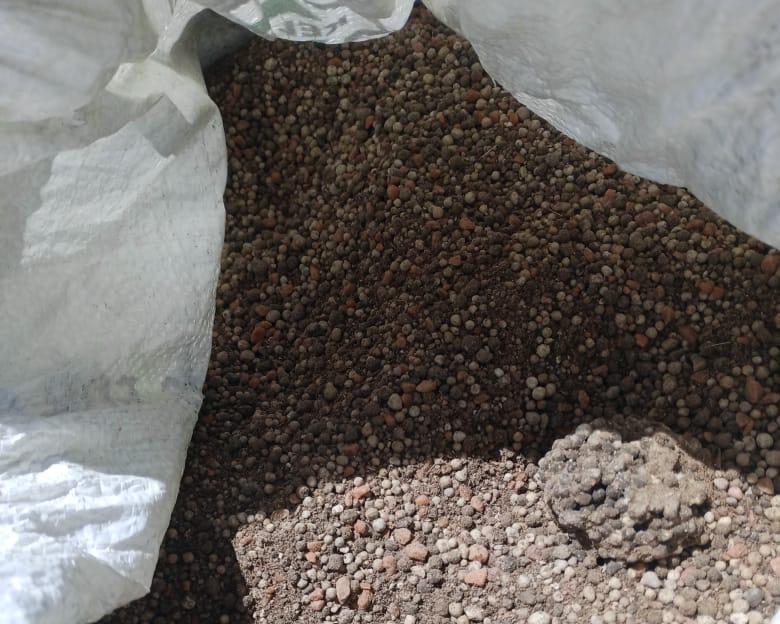Africa-Press – Kenya. The ongoing controversial fake fertilizer saga in the country has taken a new twist, with the Thika-based manufacturer questioning why Mems Distributor, a major supplier under scrutiny, has not been implicated.
KEL, the manufacturer of Kel fertilizer, has questioned hasty investigations by the police into the matter that has captured the public imagination.
In a letter dated April 17 as drafted by MMA Advocates, the fertilizer manufacturer is questioning the authenticity of the products supplied to farmers by the distributor, hinting that fertilizer delivered to farmers was of higher quantity than those supplied to Mems Distributor.
“At the point of recalling the bags of fertilizer following the allegations of sub-standard fertilizer, the quantity of bags recalled from the farmers was of a higher quantity than those distributed to them raising issues as to the accountability and origin of the extra bags,” KEL says in a protest letter.
According to the manufacturer, Mems was required to deliver 550,000 bags to NCPB. However, it had only managed to manufacture and deliver 69,670 bags.
KEL is concerned that Mems Distributor modified the initial contract without the requisite fresh bidding process as required by law.
The letter seen by the Star reveals that on January 23, 2024, Mems petitioned the National Cereals and Produce Board (NCPB) to substitute SSP fertilizer with NPK 10-26-10, citing superior plant nutrients.
“We were awarded to supply SSP, but we are kindly requesting that you substitute these quantities with NPK 10-26-10. Kelphos NPK 10-26-10 has more plant nutrients and we want to provide them to farmers who are currently planting,” said Collins Ngetich, managing director of Mems Distributor.
Furthermore, the Thika-based firm has questioned discrepancies in the value of the ordered fertilizer versus what was supplied.
They highlight a substantial variance between the tender amount awarded to Mems, totaling around Sh2.4 billion, and the actual supply, which amounted to approximately Sh190 million for the first order and Sh1.895 billion for the second Local Purchaser Order.
The firm asserts that this difference may indicate potential spiking or adulteration of the products before they reach farmers.
“The difference between the amounts points to the discrepancy surrounding the spiking and adulteration of the Company’s products before delivery to the farmers,” the company’s lawyers say.
The manufacturer wonders why state institutions are acting surprised despite conducting requisite tests and giving products supplied a clean bill of health.
Test results conducted by the Kenya Bureau of Standards (Kebs) and compliance letters from the National Cereals and Produce Board (NCPB) show 100 kilogrammes delivered for sampling were above board.
“At what point did governmental bodies such as the Ministry of Agriculture, the NCPB, and even Kebs notice the fertilizer delivered and distributed to farmers was substandard as alleged?”
The firm further explains that in a bid to ascertain the root cause of the issue, it dispatched samples of the raw materials components to Kebs for analysis on March 25, 2024.
The standards body, upon conducting laboratory analysis, confirmed compliance with all tested parameters.
The fertilizer firm has also alleged collusion among unnamed public officers to vilify the company and manipulate the narrative to shift blame for illicit actions.
Appearing before the Parliamentary Committee on Agriculture and Livestock on April 18, Kel Chemical Limited MD Patel Devesh revealed that he was under duress to write a letter indicating that his company had recalled fertilizer it had supplied to farmers.
“I was arrested at the State House meeting, and taken to the Directorate of Criminal Investigation (DCI) with no legal representation. I was forced to write a statement under duress and later released on Sh100,000 bond,” Devesh said.
Agriculture Cabinet Secretary Mithika Linturi ordered the closure of the company this month following claims of fake fertilizer.
KEL Chemicals in a statement released Friday wants the government led by the Ministry of Agriculture to come clean, wondering why NCPB is quick to compensate farmers despite its limited role in procurement.
Last week, the board urged affected farmers to file formal complaints by filling out a Claim Declaration Form available at the depot or Selling Centre where they purchased the fertilizer.
Linturi on the other hand has shifted the blame to the Kebs manufacturers who he says should be held responsible for the mess facing the affected farmers.
Appearing before the Senate Agriculture Committee, he absolved the NCPB and his ministry over the distribution of the substandard product, only insisting that all due process was followed.
For More News And Analysis About Kenya Follow Africa-Press






